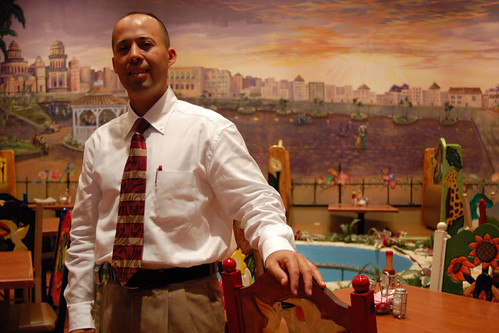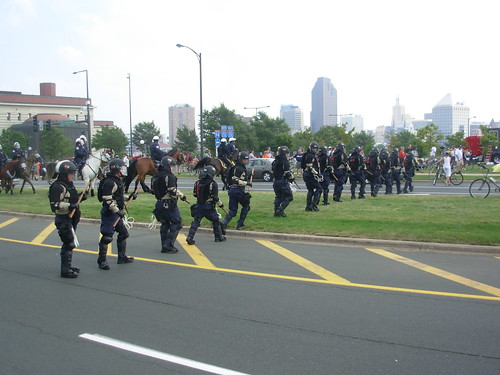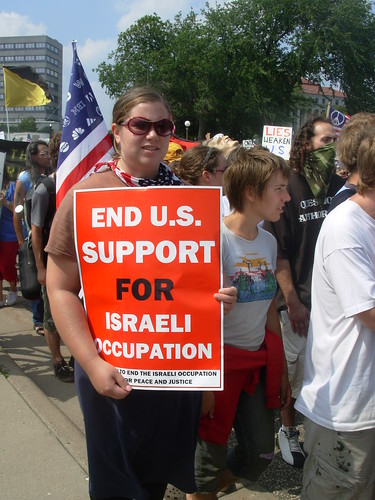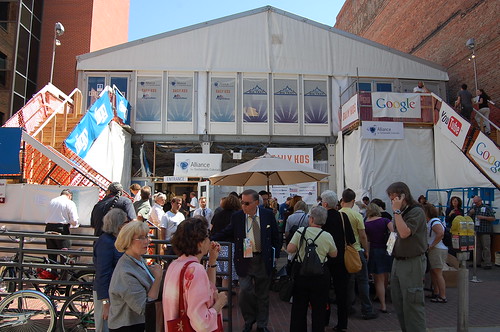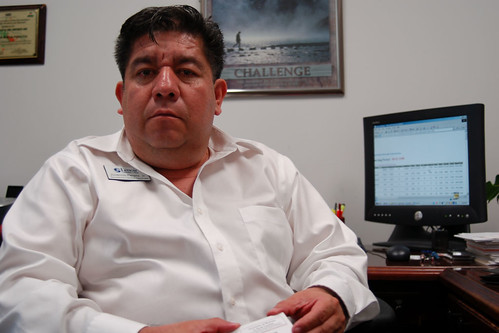McCain and The Border Fence: Denial on Spanish-language TV
Just after the Republican National Convention ended, the party’s nominee Sen. John McCain sat down for an interview with a major American network. It wasn’t ABC, NBC or CBS: he was interviewed by Jorge Ramos, Univision‘s lead anchor and the host of the show Al Punto which focuses on politics. The network’s web site summed up the interview saying McCain, “skirted questions about his vote in favor of the border wall.”
In fact, McCain seemed to tell Ramos he did not vote for construction of the border fence between the U.S. and Mexico. (He did not finish the sentence twice, however.) [This video has been removed from YouTube.]
Here’s a transcript of the original exchange in English, as published by Univision:
Ramos: You voted for the construction of the wall between Mexico and the United States. However, the Mexican Government has just confirmed that every year, at least half a million Mexicans come to the United States. How exactly are you planning to secure that border? Every single minute there is an immigrant coming into the United States illegally.
McCain: I didn’t vote for, I am not sure what you are talking about, but we can secure…
Ramos: …about 700 miles.
McCain: I say we can secure our borders with walls and/or fences in urban areas, and then virtual fences, vehicle barriersRamos: But, you did vote for the wall.
McCain: I didn’t vote for an…, I don’t know what you are exactly, what you are referring to. What my plan was, and what our proposal was, that we secure our borders, and we can secure it, not necessarily with walls and fences. Although that is important in populated areas, in the deserts of Arizona vehicle barriers, cameras, and sensors, all of those things, can be used.
Did McCain vote for the wall or not?
On Sept. 28, 2006, when the Secure Fence Act was passed that approved the construction of the border barrier, McCain voted “Yea,” Senate records show.
After that, there were several votes related to appropriations for the project, but it appears that McCain did not vote again on the matter. (Here’s Project Vote Smart’s compilation of recent McCain votes on immigration-related bills.)
Once he began campaigning for the presidency, McCain’s stance on immigration shifted away from his co-sponsorship of comprehensive immigration reform with Sen. Ted Kennedy. Early this year, in a Meet The Press interview with the late Tim Russert he practically gave up on that effort. When Russert asked him whether he would sign such a bill into law as President, McCain said, “it isn’t gonna come, it isn’t gonna come. The lesson is, they want the border secured first.”
NPR’s Jennifer Ludden mapped McCain’s trajectory on the issue in this story last June: his position now is that, as President, he would have governors certify that the border is secure before taking other immigration-related measures.
* * *
By the way, how’s that fence doing?
Not so well, The Washington Post reported this week: it’s unlikely that it will be completed on schedule, and construction costs are surging.
Barring action by Congress, “we’re out of money and operations will stop,” border protection Commissioner W. Ralph Basham told the House Homeland Security Committee.


